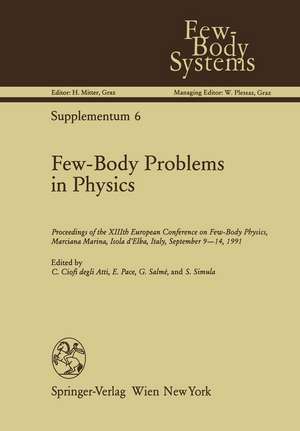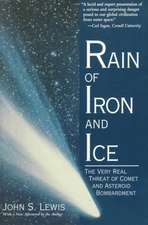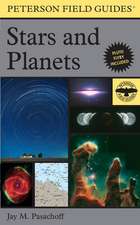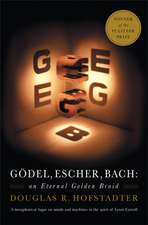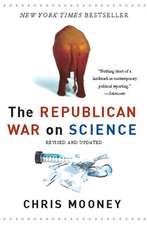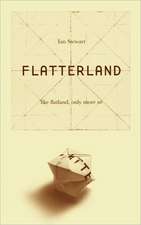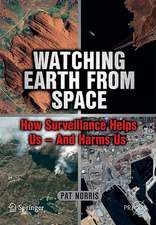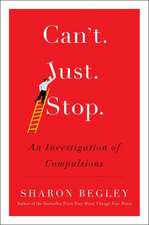Few-Body Problems in Physics: Proceedings of the XIIIth European Conference on Few-Body Physics, Marciana Marina, Isola d’Elba, Italy, September 9–14, 1991: Few-Body Systems, cartea 6
Editat de Claudio Ciofi degli Atti, Emanuele Pace, Giovanni Salme, Silvano Simulaen Limba Engleză Paperback – 14 feb 2012
Din seria Few-Body Systems
- 24%
 Preț: 854.36 lei
Preț: 854.36 lei -
 Preț: 413.37 lei
Preț: 413.37 lei - 15%
 Preț: 638.11 lei
Preț: 638.11 lei -
 Preț: 408.92 lei
Preț: 408.92 lei - 18%
 Preț: 965.97 lei
Preț: 965.97 lei -
 Preț: 397.01 lei
Preț: 397.01 lei -
 Preț: 411.64 lei
Preț: 411.64 lei - 18%
 Preț: 1232.89 lei
Preț: 1232.89 lei - 15%
 Preț: 645.60 lei
Preț: 645.60 lei -
 Preț: 422.42 lei
Preț: 422.42 lei - 15%
 Preț: 651.34 lei
Preț: 651.34 lei -
 Preț: 416.05 lei
Preț: 416.05 lei - 18%
 Preț: 951.91 lei
Preț: 951.91 lei -
 Preț: 413.54 lei
Preț: 413.54 lei -
 Preț: 387.75 lei
Preț: 387.75 lei - 15%
 Preț: 639.08 lei
Preț: 639.08 lei -
 Preț: 430.31 lei
Preț: 430.31 lei - 15%
 Preț: 675.91 lei
Preț: 675.91 lei - 15%
 Preț: 659.53 lei
Preț: 659.53 lei -
 Preț: 384.86 lei
Preț: 384.86 lei -
 Preț: 424.61 lei
Preț: 424.61 lei -
 Preț: 418.55 lei
Preț: 418.55 lei -
 Preț: 417.96 lei
Preț: 417.96 lei -
 Preț: 402.76 lei
Preț: 402.76 lei -
 Preț: 407.78 lei
Preț: 407.78 lei -
 Preț: 401.24 lei
Preț: 401.24 lei - 15%
 Preț: 666.73 lei
Preț: 666.73 lei - 15%
 Preț: 645.47 lei
Preț: 645.47 lei -
 Preț: 401.79 lei
Preț: 401.79 lei -
 Preț: 391.61 lei
Preț: 391.61 lei -
 Preț: 395.09 lei
Preț: 395.09 lei - 15%
 Preț: 656.58 lei
Preț: 656.58 lei -
 Preț: 406.05 lei
Preț: 406.05 lei - 15%
 Preț: 657.25 lei
Preț: 657.25 lei -
 Preț: 404.29 lei
Preț: 404.29 lei -
 Preț: 412.95 lei
Preț: 412.95 lei - 15%
 Preț: 657.25 lei
Preț: 657.25 lei -
 Preț: 400.47 lei
Preț: 400.47 lei - 15%
 Preț: 656.58 lei
Preț: 656.58 lei
Preț: 414.14 lei
Nou
Puncte Express: 621
Preț estimativ în valută:
79.27€ • 86.13$ • 66.63£
79.27€ • 86.13$ • 66.63£
Carte tipărită la comandă
Livrare economică 21 aprilie-05 mai
Preluare comenzi: 021 569.72.76
Specificații
ISBN-13: 9783709175835
ISBN-10: 3709175836
Pagini: 656
Ilustrații: XVI, 635 p.
Dimensiuni: 170 x 244 x 34 mm
Greutate: 1.03 kg
Ediția:Softcover reprint of the original 1st ed. 1992
Editura: SPRINGER VIENNA
Colecția Springer
Seria Few-Body Systems
Locul publicării:Vienna, Austria
ISBN-10: 3709175836
Pagini: 656
Ilustrații: XVI, 635 p.
Dimensiuni: 170 x 244 x 34 mm
Greutate: 1.03 kg
Ediția:Softcover reprint of the original 1st ed. 1992
Editura: SPRINGER VIENNA
Colecția Springer
Seria Few-Body Systems
Locul publicării:Vienna, Austria
Public țintă
ResearchCuprins
Session 1 The Structure of Hadrons and Hadronic Interactions.- The Naive Quark Model and Beyond.- Algebraic Approach to Hadronic Structure.- Antiproton Reactions and Charm (With and Without Nuclei).- The Structure of Scalar and Vector Mesons.- Some Measurements for Determining Strangeness Matrix Elements in the Nucleon.- Discussion Session: The Structure of Hadrons.- A Covariant Model of Mesons That Decouples Confinement and Chiral Symmetry Breaking.- Compact Colorless Quark-Gluon Clusters in IAE Bag Model and Intermediate Structure of SU(3) Hadrons. Pion and Nucleon Electromagnetic Form Factors.- Hyperon Structure in the Soliton Approach.- Electroproduction of Strangeness in the Nucleon.- Session 2 The Quark and Meson-Nucleon Descriptions of Few-Body Systems.- A New Partial Wave Analysis and the Nucleon-Nucleon Interaction.- Uncertainties of Phase Shift Analyses and the Nucleon-Nucleon Interaction.- S-D Transition in the Nucleon-Nucleon System.- New Results on the ?NN System.- Multiquark Exotics.- Multiquark Spectra in Large Harmonic Oscillator Bases.- The Quark Model, Deuteron Form Factors and Nuclear Magnetic Moments.- Deuteron Form Factors from Meson-Theoretical Nucleon-Nucleon Interactions.- Discussion Session: Electro- and Photodisintegration of the Deuteron.- to the Discussion Session on Photo- and Electrodisintegration of the Deuteron.- Deuteron Threshold Electrodisintegration.- L/T Structure of the Electrodisintegration of the Deuteron.- Deuteron Electrodisintegration with Relativistic Corrections.- Deuteron Photodisintegration at Intermediate Energy and Quark Models.- Polarization Observables in Deuteron Electrodisintegration.- Three-Nucleon Potentials Due to ? and ? Exchange.- Three-Body Force Effects in Three-Nucleon Systems. What Was Achieved by theStudy of Three-Nucleon Bound States?.- Discussion Session: Break-Up and Continuum States of Few-Nucleon Systems.- Break-Up and Continuum States of Few-Nucleon Systems.- Three-Nucleon Break-Up Processes.- Photo disintegration of 4He.- NN P-Wave Effects in Polarized Deuteron Capture on Hydrogen: An Exact Faddeev Calculation.- p-d Radiative Capture with Realistic Three-Nucleon Wave Functions.- Recent Advances in Three-Nucleon Continuum Studies.- Low Energy Scattering on Two-Body Bound State in Cartesian Coordinates.- Session 3 Discussion Session: Mesomolecular Problems and Muon Catalyzed Fusion.- p-d Capture Reactions in Muonic Molecules.- Muon Catalyzed Fusion (µCF) as a Method for Studying Few Nucleon Systems.- Effect of the Nuclear d-t Resonance on Muon Sticking in µ-Catalyzed Fusion.- Muonic Molecules of Light Nuclei.- Session 4 Response of Few-Body Systems to High Energy Probes.- Theoretical Description of Nucleon Structure Functions.- Discussion Session: The Spin Structure of the Nucleon.- The Spin Muon Collaboration Experiment.- Future Experiments to Measure the Spin Structure of the Nucleon.- Measurement of the Neutron Spin Structure Function—Test of the Bjorken Sum Rule.- The Role of Sea Polarisation and Gluons in Magnetic Moments and Resonance Excitation.- Discussion Session: Present Status and Future Perspectives in the Experimental Activity.- Summary of Sessions on Experimental Facilities.- MAMI Experimental Activity.- Nuclear Physics with 1 GeV Continuous Current Electron Beams..- Few-Body Experimental Program at CEBAF.- Few-Body Physics at TRIUMF and KAON.- News from SATURNE in Few-Body Systems.- The Few-Body Experimental Activity at the Saskatchewan Accelerator Laboratory.- Discussion Session: Present Status and Future Perspectives in the ExperimentalActivity.- The Many Facets of QCD at Low and Medium Energies: The Role of the Nucleus. European Collaboration for a Continuous Wave Electron Accelerator at 15–30 GeV.- Present and Future Few-Nucleon Studies with Cooler Beams at the Indiana University Cyclotron Facility.- Discussion Session: Electron Scattering by Few-Nucleon Systems.- The Scattering of Polarized Electrons from Polarized 3He: First Experiments and Implications for the Measurement of GEn.- Anomaly in the Transverse Response of 3He(e, e’p) Reaction for High Recoil Momentum.- Electromagnetic Studies of Few-Body Systems Using BLAST.- Studies of Inclusive Electron Scattering off the Lightest Nuclei.- Session 5 Theoretical Methods in Few-Body Problems.- Relativistic Approaches to the Few-Body Problem.- Front-Form Calculation of ?d ? np Reactions at High Energies.- Relativistic Two-Body Equations and Nuclear Interactions.- Discussion Session: New Approaches for Bound and Scattering States.- New Approaches for Bound and Scattering States.- New Applications of the Faddeev Approach to the Three-Body Coulomb Problem.- New Method for Solving Three-Dimensional Schrödinger Equation.- The Integrodifferential Equation Approach and Some Applications.- Study of the Bound States of Few-Nucleon Systems with Correlated Basis Functions.- Discussion Session: Few-Body Problems in Atomic and Molecular Physics: Dynamics and Reactions.- Discrete Analogs of Hyperspherical Harmonics and Their Use for the Quantum Mechanical Three-Body Problem.- Many-Body Coulomb Systems Above the Threshold for Total Break-Up.- Non-Relativistic Field Theory in Few-Body Atomic Physics.- Discussion Session: Few-Body Problems in Atomic and Molecular Physics: Bound States and Molecular Structure.- Green’s Functions for Molecules.- Bound Statesand Molecular Structure of Systems with Hyperons.- List of Participants.- Author Index.
